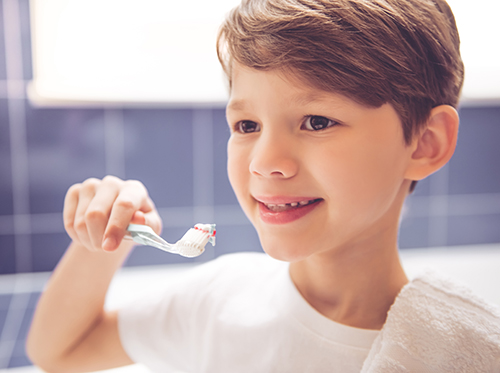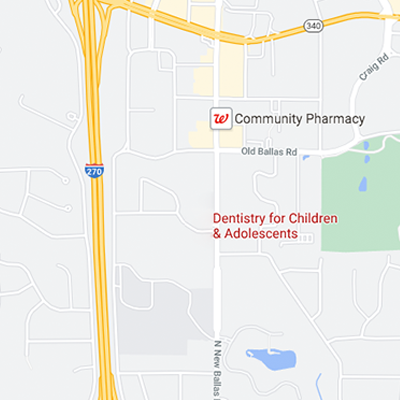Five Tips to Help Kids Overcome Their Fears of the Dentist
June 19th, 2024

Is your child nervous about visiting Dr. Varble, Dr. Dill, Dr. Wong, and Dr. Parks and our team at Dentistry for Children? Today, we put together some tips to help ensure your little one relaxes before his or her next dental checkup!
- Start early. The earlier your child visits our Creve Coeur or St. Charles office, the better. This will provide your child with a familiarity and ensure that he or she is comfortable with our team, office, and surroundings, whether it’s for a preventive visit or an emergency. The American Academy of Pediatric Dentistry recommends that your child first visit the dentist at age one or when the first tooth is visible.
- Choose your words wisely. When preparing for a visit, go easy on the details. Over-explaining and adding more information about treatment such as a filling will lead to more questions as well as add unnecessary alarm. Remember to keep a positive attitude!
- Bring a distraction to your child’s appointment. Bringing along music is a great idea. Just plug in those earphones, have your child close his or her eyes, and get lost in the tunes. Listening to music can also be a pain killer.
- Consider a “pretend visit.” Before your child’s appointment, try role playing with him or her—you be the doctor and your child is the patient. All you'll need is a toothbrush. The key is getting your child familiar with the routine so that he or she is more relaxed once it’s time for the real visit with Dr. Varble, Dr. Dill, Dr. Wong, and Dr. Parks.
- Stress the importance of good oral health. Instill in your child that visiting the dentist is a necessity, not a choice, and that visiting the dentist will lead to a lifetime of smiles.
We hope this helps! For more on dental anxieties, ask us during your next visit to Dentistry for Children! Or, ask us on Facebook!





